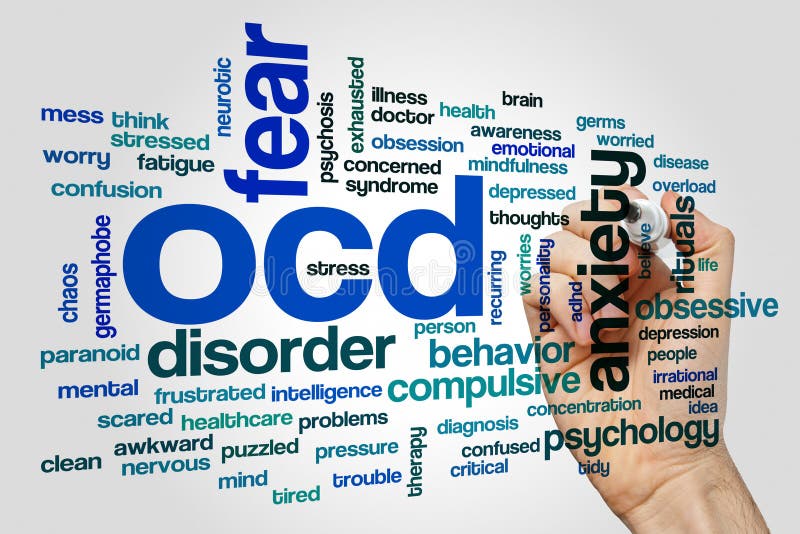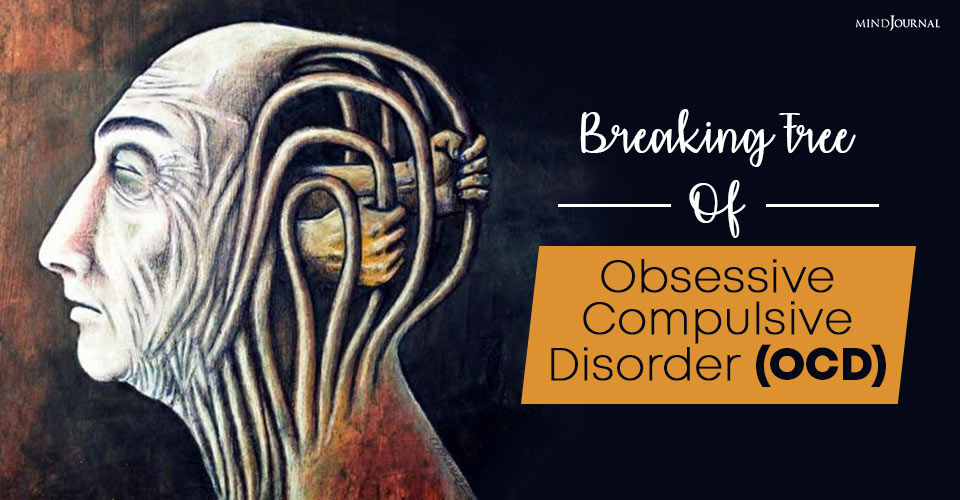Breaking Free from OCD: Unleashing the Power of Effective Treatment Methods
 |
| Unlocking the Mind: Understanding and Treating OCD, Health news // Dreamstime |
Discovering Effective Treatment Methods for Intrusive Thoughts and Compulsive Behaviors
R E A D : Unpacking Psychotic Disorders: Symptoms, Causes, and Effective Treatment
* WHAT IS OCD
>> OCD stands for Obsessive-Compulsive Disorder, which is a mental health condition that affects a person's thoughts, feelings, and behaviors. People with OCD experience obsessions, which are unwanted and intrusive thoughts, images, or urges that are difficult to control and cause distress. They also experience compulsions, which are repetitive behaviors or mental acts that they feel compelled to perform in response to their obsessions.
Common obsessions in OCD include contamination fears, a need for symmetry or order, aggressive or sexual thoughts, and a fear of harm coming to oneself or others. Common compulsions include excessive cleaning or hand-washing, checking, counting, repeating words or phrases, and arranging objects in a particular way.
OCD can significantly interfere with a person's daily life and relationships, and it is often accompanied by anxiety and depression. However, with proper treatment, which may include therapy, medication, or a combination of both, people with OCD can manage their symptoms and lead fulfilling lives.
* THE CAUSES OCD
The exact cause of OCD is not known, but it is believed to be caused by a combination of genetic, biological, and environmental factors. Some studies have shown that OCD may be related to differences in brain function and structure, including abnormalities in certain areas of the brain that regulate emotion and behavior.
In terms of genetics, there is evidence to suggest that OCD runs in families and may be inherited. However, it is not solely determined by genetics, and environmental factors may also play a role.
Trauma or stress may trigger OCD in some people, but it is important to note that OCD is not caused by personal weakness, poor parenting, or character flaws.
OCD is a complex mental health condition that can be influenced by a variety of factors. Here are some additional details on each of the possible causes:
R E A D : Uncovering Pot Syndrome Symptoms, Causes, Treatment, and Prevention
> Genetics
There is evidence to suggest that OCD runs in families and may have a genetic component. Studies have shown that people with a first-degree relative with OCD are at higher risk of developing the condition themselves. However, not all people with a family history of OCD will develop the disorder, and there may be other factors at play.
> Brain abnormalities
Research has found that certain areas of the brain, such as the basal ganglia and the orbitofrontal cortex, may function differently in people with OCD. These brain regions are involved in regulating emotions, behavior, and decision-making, and may be affected by imbalances in certain neurotransmitters, such as serotonin.
> Environmental factors
Trauma, stress, and life changes may trigger OCD in some people. For example, some people develop OCD after experiencing a traumatic event, such as an accident or abuse, while others may develop the condition after a major life change, such as the birth of a child or the loss of a loved one.
It is important to note that while these factors may increase the risk of developing OCD, they do not guarantee that someone will develop the condition. Additionally, not all people with OCD have a clear cause or trigger for their symptoms, and each person's experience with OCD may be unique.
* THE SYMPTOMS OF OCD
The symptoms of OCD can vary widely from person to person, but generally involve recurring and unwanted thoughts, feelings, or images (obsessions) that lead to repetitive behaviors or mental acts (compulsions). Here are some common symptoms of OCD:
Obsessions:
- Fear of contamination or germs
- Fear of harm to oneself or others
- Intrusive thoughts about sex, violence, or religion
- Excessive concern with order, symmetry, or exactness
- Persistent doubts or uncertainty
Compulsions:
- Excessive cleaning or hand-washing
- Repeatedly checking things (e.g., locks, appliances, switches)
- Counting or arranging objects in a particular way
- Repeating words or phrases
- Mental rituals (e.g., praying, counting, rehearsing)
Here are some additional details on the symptoms of OCD:
Obsessions:
- Fear of contamination or germs: This may involve excessive cleaning or avoidance of certain situations or objects.
- Fear of harm to oneself or others: This may involve excessive checking or reassurance-seeking behaviors.
- Intrusive thoughts about sex, violence, or religion: These thoughts may be distressing or unwanted and can be difficult to control.
- Excessive concern with order, symmetry, or exactness: This may involve rearranging items in a specific order or counting objects repeatedly.
- Persistent doubts or uncertainty: This may involve a need for reassurance or asking others for their opinions repeatedly.
Compulsions:
- Excessive cleaning or hand-washing: This may involve frequent hand-washing, showering, or cleaning of objects or surfaces.
- Repeatedly checking things: This may involve repeatedly checking locks, appliances, or other objects to make sure they are functioning properly.
- Counting or arranging objects in a particular way: This may involve arranging objects in a specific order or counting objects repeatedly.
- Repeating words or phrases: This may involve saying a word or phrase repeatedly or engaging in other verbal rituals.
- Mental rituals: This may involve mental counting, praying, or other mental rituals.
In addition to these specific symptoms, OCD may also involve avoidance of certain situations or triggers, which can interfere with daily life and relationships. People with OCD may also experience anxiety, depression, or other mental health conditions as a result of their symptoms.
* OCD TREATMENT METHODS
There are several effective treatment methods for OCD, including:
Cognitive-behavioral therapy (CBT):
CBT is a type of therapy that helps people change the way they think and behave. In OCD treatment, CBT typically involves exposure and response prevention (ERP), which involves gradually exposing the person to their obsessions while preventing them from engaging in their compulsive behaviors. Over time, this can help the person learn to tolerate their anxiety without engaging in compulsive behaviors.
Medication:
Antidepressants, particularly selective serotonin reuptake inhibitors (SSRIs), are often used to treat OCD. These medications can help reduce symptoms of anxiety and depression that are often associated with OCD.
Mindfulness-based therapies:
Mindfulness-based therapies, such as mindfulness-based cognitive therapy (MBCT), can help people with OCD learn to become more aware of their thoughts and feelings without reacting to them.
Psychodynamic therapy:
Psychodynamic therapy focuses on exploring unconscious thoughts and emotions that may be contributing to OCD symptoms.
Self-help strategies:
Self-help strategies, such as relaxation techniques, exercise, and healthy sleep habits, can help reduce anxiety and stress associated with OCD.
some additional details on OCD treatment methods:
Cognitive-behavioral therapy (CBT)
CBT is a highly effective treatment for OCD and typically involves a structured program of exposure and response prevention (ERP) therapy.
In ERP, the person is gradually exposed to their obsessive thoughts or triggers while being prevented from engaging in their compulsive behaviors.
Over time, this can help reduce anxiety and desensitize the person to their triggers, ultimately reducing the urge to engage in compulsive behaviors.
CBT may also involve other techniques, such as cognitive restructuring, which helps the person learn to challenge and change their negative thought patterns.
Medication
Antidepressants, particularly selective serotonin reuptake inhibitors (SSRIs), are often used to treat OCD.
These medications can help reduce symptoms of anxiety and depression that are often associated with OCD, and can take several weeks to become fully effective.
 |
| Discovering Effective Treatment Methods for Intrusive Thoughts and Compulsive Behaviors, Health news // Pixel |
Other medications, such as antipsychotics, may also be used in some cases.
Mindfulness-based therapies
Mindfulness-based therapies, such as mindfulness-based cognitive therapy (MBCT), can help people with OCD learn to become more aware of their thoughts and feelings without reacting to them.
These therapies can help reduce anxiety and stress associated with OCD, and may be used in combination with other therapies.
Psychodynamic therapy
Psychodynamic therapy is a type of talk therapy that focuses on exploring unconscious thoughts and emotions that may be contributing to OCD symptoms.
This therapy can help the person gain insight into their symptoms and develop strategies for managing them.
Self-help strategies
Self-help strategies, such as relaxation techniques, exercise, and healthy sleep habits, can help reduce anxiety and stress associated with OCD.
Support groups or online forums can also provide a sense of community and understanding for people with OCD.
It's important to note that OCD is a chronic condition and may require ongoing treatment and management. Working with a mental health professional and developing a personalized treatment plan can help people with OCD manage their symptoms and improve their quality of life.
>> OCD is a mental health disorder characterized by persistent, intrusive thoughts (obsessions) and repetitive behaviors (compulsions) that are intended to reduce anxiety or prevent harm. OCD can significantly impact a person's daily life, relationships, and well-being. However, effective treatment methods, such as cognitive-behavioral therapy (CBT), medication, mindfulness-based therapies, psychodynamic therapy, and self-help strategies, are available to help manage OCD symptoms. Working with a mental health professional and developing a personalized treatment plan can help people with OCD manage their symptoms and improve their quality of life.
R E A D :
- Bipolar Disorder Effective Treatment Options for Managing Symptoms
- Bird Flu Spreads Globally, Threatening Poultry Supply and Public Health
- Charcot-Marie-Tooth Disease: Understanding a Rare Genetic Disorder and its Dental Manifestations
- Conquering Vaginal Bacterial Infections Causes, Complications, and Prevention Tips


No comments:
Post a Comment